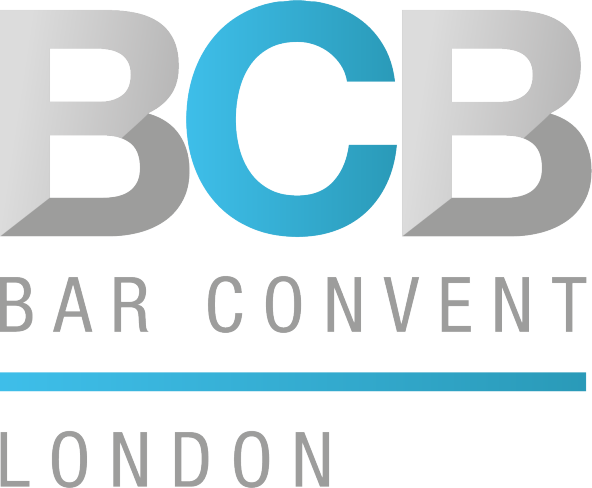How to Build a Successful Team of Bar Staff
Though some say a good bar team should work like a well-oiled machine, bartender Megs Miller prefers the analogy of family.
Given the name of the bar she co-founded and manages – Fam – this shouldn’t come as a surprise. Since its opening in December, the Mayfair venue has proven itself a solid example of how to foster a positive work environment in an industry that often puts mental and physical health on the backburner.
So what does it take to build a team that feels like family?
Miller explained the fundamentals of encouraging camaraderie in her session at Imbibe Live, using examples from her own experiences working with bar teams around the world. Fortunately, we took notes…
Share responsibilities.
‘Bramble in Edinburgh was where I felt I really started to learn so much about not only cocktails, but working as a team,’ Miller said.
There, she realised that a good bar team is one in which everyone pitches in, and everyone learns how to do every job.
‘Yes, there was a manager, yes there was an assistant manager, but [the] time you started your shift [decided] the job you were doing for the day,’ she explained. ‘So if you open you're lead bartender, if you get there second you’re second bartender [and if you’re scheduled] third you’re on the floor. It was the first time I'd ever worked in that scenario. It broke down those barriers.’
Later, after setting up the bar consultancy La Comunidad with Rhys Wilson and Dre Masso, she applied this ethos to the bar teams she worked with in Cartagena, Colombia.
‘When we got to Colombia we realised [the staff] was super divided. So our approach was to lead from the bottom or the back. Because if you're above doing a job, how can you ask somebody else to do it? It doesn't make any sense. If you want to be part of a team, everyone is an equal. No one is better than each other.’
Get everyone involved in menu development.
One of the most straightforward ways to help your team feel invested in their work, said Miller, is to make them a part of menu development.
She came to understand just how powerful this can be while working in Jakarta as a consultant. There, she explained, many premium cocktail bars bring in ‘white bartenders with a bit of a reputation’ to develop menus and train staff on how to make them. Once the consultant’s job is done, the staff are left making drinks they feel no connection to.
Miller saw a better way: ‘How about we give it to [the bartenders]? How about we include everyone, so everyone has more excitement and they actually care what they’re giving out?’
She assigned each bartender a different spirit, gave them a month to develop their drinks and they all convened to pick the ones they liked best.
‘At the end of it, we had a menu that, for the first time ever in Indonesia that we know of, had cocktails that were actually created by the bartenders who worked there. To see their pride was amazing.
Diversity is key.
This one’s simple, said Miller: ‘A varied team is so much better. The more races, the more genders, the more sexualities you have on a team, the more thought and creativity you bring to your team.’
Sometimes you have to let people go.
Even the greatest bar team doesn’t always get along. There’s bound to be arguments and tension at times – but if that tension always seems to emanate from one person in particular, it might be time to say goodbye.
‘At the end of the day, sometimes if there’s a negative attitude in the team you have to let [that person] go,’ advised Miller.
‘It’s better for the whole venue, the bar, the team and maybe for that particular individual. Maybe they’re negative because they’re not happy. So it’s time to bite the bullet and let it go.’
Bond outside the bar.
Consider making time for bonding and educational activities as a team outside the bar.
‘[Fam is] closed every Sunday-Monday, and every second Monday as a team we get out of the bar and do a Fam field trip,' Miller said. ‘We went to the Beefeater Distillery, we went on a walking tour through Richmond and Wimbledon with Negronis. We spend time with each other as a family.’
Take care of each other.
Yes, Miller has been dubbed ‘Mom’ by her friends and staff over the years, but she thinks that adopting a nurturing attitude is important for everyone on a team. ‘Hospitality is taking care of one another – and not just over the bar,’ she said.
‘How often do you speak to your real family? How often do you speak to your bar family? You see your bar family more than anyone else in day-to-day life. Take care of each other. This is so important. [Your co-workers at the bar] are the most important people in your life right now. You have to look after one another.’
To Miller, ‘looking after one another’ can be as simple as making sure your team’s drinking enough water or asking how their day is going.
But it can also be built into a bar’s business model. Fam operates as a profit share, so all members of staff will get a percentage once the bar turns a profit.
‘I just want the staff to be taken care of. How much money do you think people lose when staff leave? How much money does it take to retrain? It doesn't make sense for the business either.’
This article was updated from one that was originally published in imbibe live magazine on July 09, 2019
